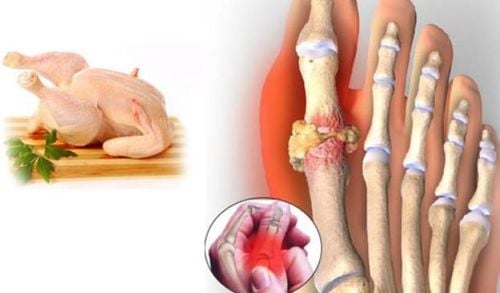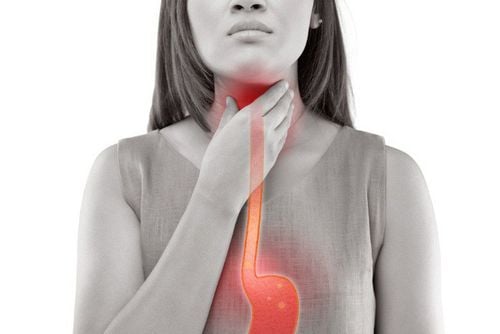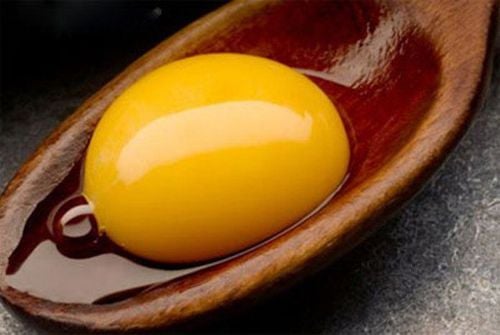Chicken is a nutritious food that supports health recovery. However, if you have an open wound, it’s best to avoid chicken, as it may hinder the healing process.
1. What is an open wound?
Open wounds are injuries where the skin is torn, cut, or punctured. Common signs include bleeding, redness, swelling around the wound, and discomfort or pain on the skin's surface.
Minor wounds can typically be managed at home and do not pose significant issues for healthy individuals. However, large or deep wounds with heavy bleeding should be treated at a hospital to prevent excessive blood loss and potential infection.
2. Can you eat chicken with an open wound?
Many people question whether eating chicken is safe with an open wound, as it is often discouraged without clear explanations. While chicken is a highly nutritious food, it is best to avoid consuming it when dealing with an open wound, especially during the early stages of skin regeneration.
As the wound begins to heal and new skin forms, it may feel itchy and uncomfortable. Consuming chicken at this stage might intensify itching, leading to scratching that delays healing and increases the risk of raised scars.
For optimal healing, it is advised to avoid chicken until the wound has fully recovered. Doing so can help the wound heal faster and avoid unnecessary complications for the patient.
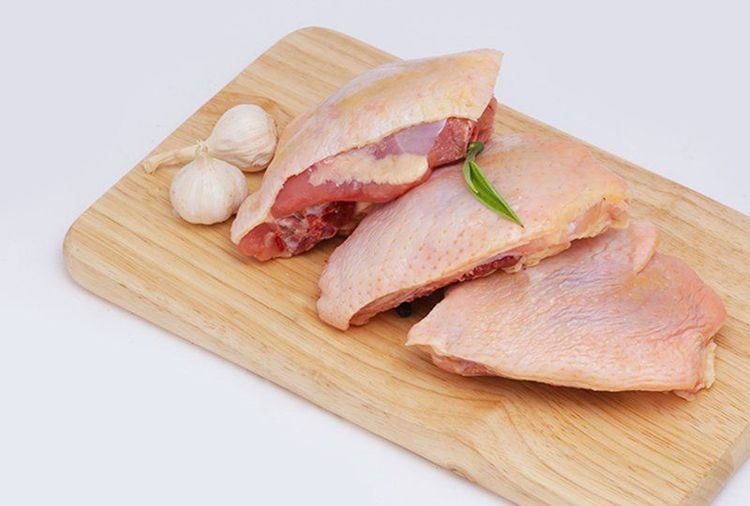
3. How should you eat when you have an open wound?
In addition to proper wound care, such as changing dressings and cleaning the wound to prevent infection, maintaining an appropriate diet is crucial.
For minor open wounds, dietary adjustments may not seem necessary as they have little impact on daily life. However, for larger or more severe wounds, food choices and nutritional status significantly influence the healing process. Severe skin damage requires more energy, vitamins, minerals, and essential proteins to accelerate wound closure. Therefore, when dealing with open wounds, particularly large ones, it is vital to pay close attention to your diet to ensure it supports effective healing.
- Foods to Eat When You Have an Open Wound:
Protein-Rich Foods: Increase intake of foods high in protein, such as meat, fish, eggs, milk, and legumes. Protein is a crucial component for wound healing as it plays a significant role in tissue repair and regeneration. - Vitamins and Minerals: Iron, Folic Acid, and Vitamin B12: Found in eggs, milk, and dark leafy greens, these nutrients are essential for tissue repair and red blood cell production. Vitamins A, E, and C: These vitamins promote the formation of new tissue and speed up wound healing. Vitamin C, in particular, plays a vital role in boosting the immune system, preventing infection, and reducing inflammation.Foods high in vitamin C include dark green vegetables and fresh fruits like papaya, dragon fruit, guava, tangerines, oranges, and grapefruit.
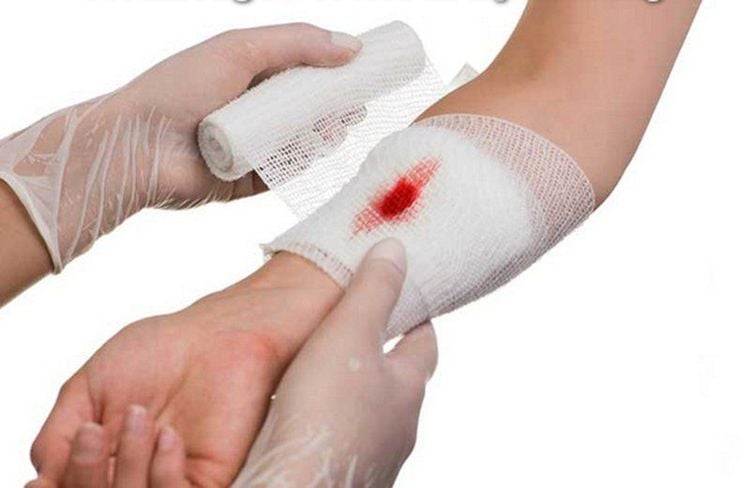
Foods to Avoid When You Have an Open Wound:
- High-Carbohydrate Foods: Avoid foods with high carbohydrate content, especially for diabetic patients, as these can slow down the wound healing process. Individuals with higher blood sugar levels should consult their doctors for dietary advice, particularly for open wounds on extremities.
- Water Spinach: Should be avoided as it may lead to raised scars
- Chicken and Sticky Rice: Refrain from consuming these during the skin regeneration phase, as they can cause itching and result in unsightly scars
- Beef: Although rich in protein and beneficial for overall recovery, beef is not recommended for open wounds as it increases the risk of permanent dark scars, which are difficult to treat with conventional methods.
- Dog Meat: High in protein, dog meat should also be avoided during the scar-healing process, as it may contribute to raised scars.
- Seafood: While seafood is nutritious, it can cause allergic reactions in patients with open wounds, leading to itching and discomfort.
Foods in this category should be avoided until the wound has fully healed, which can typically be assessed visually to determine the state of recovery.
By avoiding chicken during the recovery period of an open wound, you can minimize itching and prevent delayed healing, thereby reducing the risk of raised scars. In addition, proper wound care is essential to avoid infections and protect overall health.
For more health, nutrition, and beauty tips, visit Vinmec International General Hospital to safeguard the health of yourself and your loved ones.
To schedule an appointment at the hospital, please contact the HOTLINE or book directly HERE. Download the MyVinmec App to manage, track, and schedule appointments conveniently anytime, anywhere.





